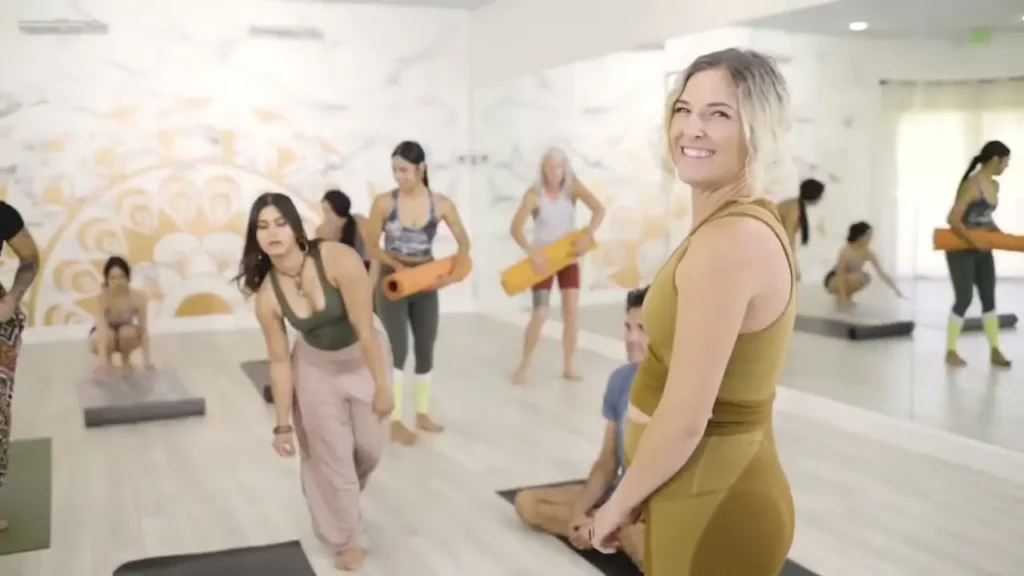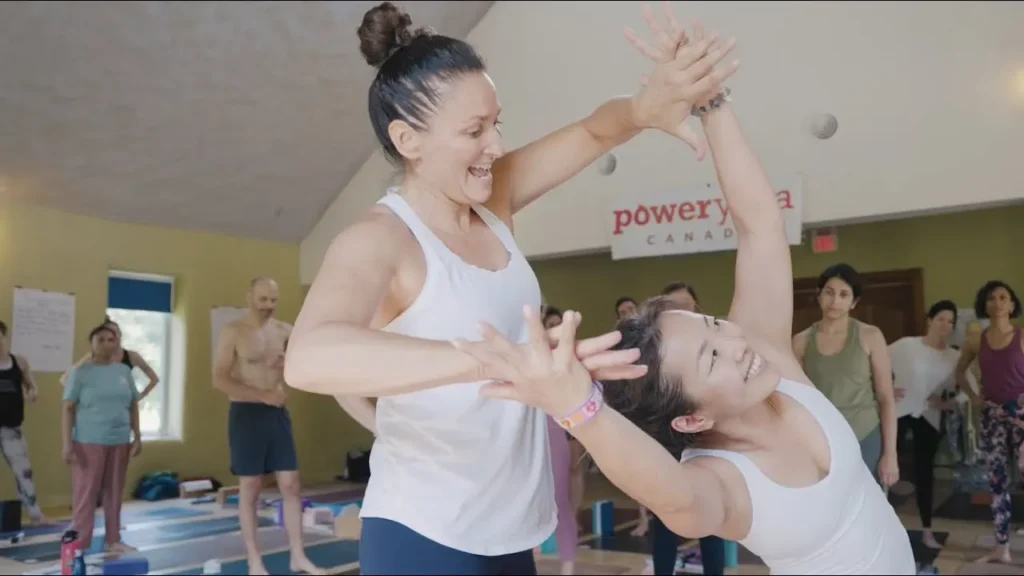
The Certified-yoga.com ryt 200 is a foundational yoga teaching credential that many aspiring yoga instructors pursue to establish their careers. This certification is recognized by the Yoga Alliance, a leading nonprofit that sets standards for yoga education globally. Completing an RYT 200 program qualifies an instructor to teach yoga, providing them with fundamental skills in teaching methodology, anatomy, yoga philosophy, and practical techniques for leading classes safely and effectively. Here, we’ll explore the importance of the RYT 200, what it involves, and what it means to complete this training through Certified Yoga or similar institutions.

What is the Certified-yoga.com ryt 200?
Registered Yoga Teacher (RYT) 200 refers to an instructor who has completed a 200-hour Yoga Teacher Training (YTT) program and registered with the Yoga Alliance. The “200” reflects the total hours required for this foundational training. This credential is essential for those who aim to teach professionally, as most yoga studios, gyms, and wellness centers require instructors to hold at least this level of certification.
Yoga Alliance offers several levels of teacher credentials, but RYT 200 is typically the entry-level requirement to teach yoga. It opens doors for further advancement, allowing instructors to pursue higher credentials like the RYT 500, which includes an additional 300 hours of training for deeper specialization.
Structure of an RYT 200 Program
A comprehensive RYT 200 program includes a mix of theoretical and practical modules designed to equip new teachers with a holistic understanding of yoga and how to lead classes. Here’s a breakdown of what these programs typically cover:
- Yoga Techniques and Practices (100 hours):
- Detailed instruction on postures (asanas), breathing exercises (pranayama), and meditation techniques.
- This hands-on component is essential for students to develop their personal practice and understand how to guide others.
- Teaching Methodology (25 hours):
- Focuses on how to effectively communicate instructions, correct students’ postures, and create a supportive class environment.
- Covers essentials like sequencing a class and creating variations for different skill levels.
- Anatomy and Physiology (20 hours):
- Provides a foundation in human anatomy and how it applies to yoga.
- Teaches about injury prevention and safe adjustments for various body types.
- Yoga Philosophy and Ethics (30 hours):
- Covers the history and philosophy of yoga, often through studying ancient texts like the Yoga Sutras.
- Explores the ethical considerations of teaching, including respecting cultural origins and creating a safe space for all students.
- Practicum (25 hours):
- Offers hands-on teaching experience under supervision, enabling students to lead practice classes and receive feedback.
This structure aligns with Yoga Alliance standards, and all RYT 200 programs, including Certified Yoga’s, adhere to these minimum training requirements to maintain accreditation.
Benefits of the RYT 200 Certification
The RYT 200 designation is widely recognized and can boost credibility, especially for instructors new to the field. Here are some key benefits:
- Employment Opportunities: Most studios and fitness centers require a minimum of RYT 200 certification for instructors. This credential assures employers of a standard level of training and expertise.
- Foundation for Advanced Credentials: Once certified, RYT 200 instructors can pursue higher credentials, such as RYT 500 or specialty certifications like Registered Children’s Yoga Teacher (RCYT) or Registered Prenatal Yoga Teacher (RPYT).
- Professional Development: The certification process involves continuous learning and provides an opportunity to deepen one’s practice and understanding of yoga. Instructors can keep expanding their knowledge through workshops and additional certifications recognized by Yoga Alliance.
Completing this certification through an accredited institution like Certified Yoga also ensures that the training meets professional standards, which helps in gaining recognition within the yoga community.

Options for Completing RYT 200
The Yoga Alliance recognizes both in-person and online RYT 200 programs, giving students flexibility based on their schedules and preferences.
- In-Person Programs: These typically take 3–6 weeks to complete and provide the advantage of live interaction and hands-on adjustments.
- Online Programs: Many institutions, including Certified Yoga, offer online RYT 200 courses that can be completed at a student’s own pace. This format has gained popularity as it allows flexibility and accessibility, enabling students to balance training with other commitments.
Whether you choose an online or in-person program, ensure that the school is registered with the Yoga Alliance, as this is necessary to receive RYT status. Certified Yoga’s RYT 200 program is Yoga Alliance-approved, meaning graduates can immediately register as certified instructors.
After RYT 200: Building a Career in Yoga
Upon completing the RYT 200, instructors have various paths they can take to build a successful yoga career:
- Begin Teaching: With the foundational skills acquired, new instructors can start teaching at yoga studios, gyms, or online platforms. Entry-level instructors generally earn between $25–$75 per class, though rates can vary widely depending on location and experience.
- Advanced Training: To deepen their expertise, many instructors pursue additional training. The RYT 500 credential, for example, involves an additional 300-hour training. This can lead to better opportunities, including senior teaching positions and eligibility to teach specialty courses.
- Specialty Certifications: RYT 200-certified teachers can branch into specialized areas such as prenatal yoga, children’s yoga, or therapeutic yoga, which require additional credentials like RCYT and RPYT.
- Continuing Education: Yoga Alliance requires that registered teachers complete continuing education to stay current. This commitment to ongoing learning enhances teaching skills and keeps instructors informed of new developments and safety practices in the industry.
Choosing the Right RYT 200 Program
When selecting an RYT 200 program, consider the following factors:
- Accreditation: Ensure the school is a Registered Yoga School (RYS) with Yoga Alliance. Certified Yoga is an example of a Yoga Alliance-approved institution.
- Training Style: Choose a program that aligns with the style of yoga you intend to teach, whether it’s Vinyasa, Hatha, Ashtanga, or another type.
- Learning Format: Consider whether you learn best in an in-person environment or if you prefer the flexibility of an online course.
- Support and Mentorship: Some schools offer mentoring even after certification, providing guidance as you transition into teaching.

Why Certified Yoga?
Certified Yoga’s RYT 200 program stands out because it is comprehensive and meets Yoga Alliance’s stringent standards. The program provides a blend of online resources, live sessions, and practical experience, ensuring that graduates are well-prepared to lead classes. As part of the certification, Certified Yoga offers guidance on how to register with Yoga Alliance, which is an essential step for those planning to teach professionally.
Conclusion
Obtaining an RYT 200 certification through a reputable school like Certified Yoga is a powerful way to enter the yoga teaching profession with confidence. This foundational certification ensures that instructors have a solid grasp of yoga techniques, teaching methodology, anatomy, and ethics—skills essential for leading safe and effective yoga classes. Additionally, this certification opens doors for continued growth, with advanced pathways like RYT 500 and specialty certifications in children’s or prenatal yoga.
For those passionate about sharing yoga, Certified Yoga’s RYT 200 program provides a comprehensive start that adheres to Yoga Alliance standards, offering flexibility, depth, and the potential to teach globally. By investing in a high-quality RYT 200 training, instructors not only gain credibility but also join a supportive community dedicated to professional development and lifelong learning in yoga.
